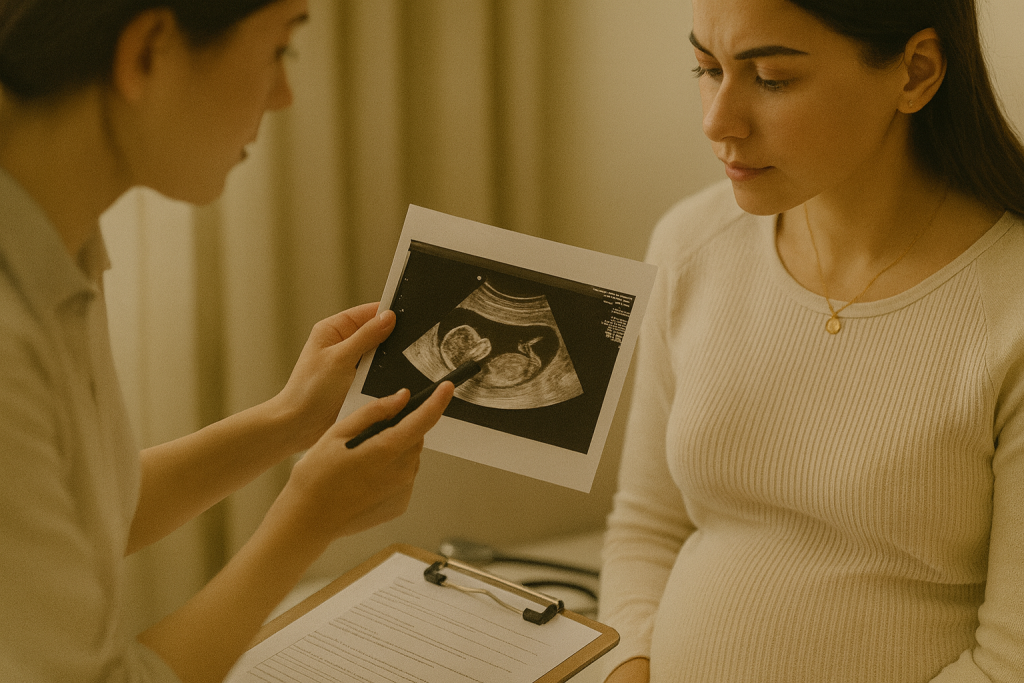
PREGNANCY
31 Jul 2025
Screening Tests During Pregnancy: What to Expect and Why They Matter

Preconception and Early Pregnancy Screening Tests
The first stage of pregnancy, when all the baby’s key organs are developing, is the most important time to check the health of both the baby and the mother. One of the first tests your doctor may recommend is a blood test to check for folic acid, iron levels, and blood sugar. Studies show that deficiencies in folic acid, iron, or blood sugar during pregnancy can affect both maternal and fetal health. A study published in *The American Journal of Obstetrics and Gynecology* found that iron deficiency is a major risk factor for anemia during pregnancy, leading to fatigue and additional health issues.
Following that, if there is a genetic risk or concern about hereditary conditions, your doctor may refer you for genetic screening tests. These include tests such as amniocentesis or chorionic villus sampling (CVS), which involve taking a sample from the amniotic fluid or placenta. These tests help identify genetic disorders such as Down syndrome, trisomy 18, and trisomy 13. Research published in *Journal of Clinical Investigation* found that genetic screening during pregnancy can help prevent births with severe genetic problems.
Ultrasound Tests During Pregnancy
Ultrasound, commonly known as the "sonogram," is one of the most recommended tests during pregnancy. This test uses sound waves to visualize the baby in the womb and check the status of its organs. Typically, the doctor will recommend an ultrasound at 12, 20, and 32 weeks of pregnancy, with the 12-week scan providing important information about the size and early development of the baby’s organs.
The second ultrasound, usually performed at 20 weeks, can also diagnose issues with organs such as the heart, brain, and kidneys. A study in *The Lancet* found that regular ultrasounds significantly increase the chances of detecting health problems in the baby at an early stage, giving mothers and doctors critical information that can change how health problems are managed.
Screening for Gestational Diabetes
During pregnancy, particularly after the 24th week, there’s an increased risk of developing gestational diabetes. This condition, where blood sugar levels become too high, can lead to complications during labor and health issues for both the mother and baby. Studies show that gestational diabetes can lead to a high birth weight baby, which complicates delivery, and can also increase the risk of long-term childhood health problems like obesity. A study published in *The Journal of Clinical Endocrinology & Metabolism* found that screening for gestational diabetes allows for early diagnosis, enabling preventive care and minimizing complications.
Why is it Important to Do These Tests on Time?
Screening tests during pregnancy are not only designed to identify physical health problems. They also provide a more complete picture of a healthy pregnancy and help identify the individual needs of each mother during this time. A study published in *The British Medical Journal* showed that women who complete all the recommended screenings and tests have healthier pregnancies, with fewer complications during childbirth.
Even if you're feeling fine and have no unusual symptoms, it's important not to miss these tests. Often, small issues that can be discovered early can be prevented with ease. Doctors do everything they can to ensure your health, but it’s equally important for you to be proactive in knowing your rights and completing all the necessary tests.
MOMent of me
This place grew from that moment- for every mom looking for a softer landing.
SITE BY MOMENT OF ME 2025